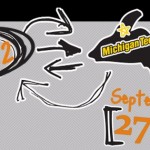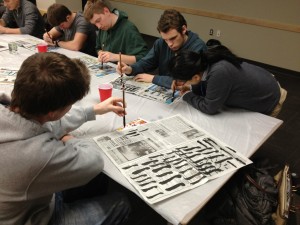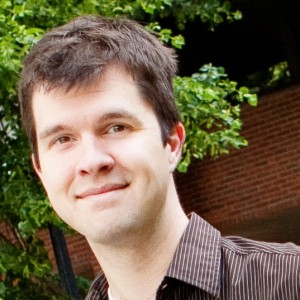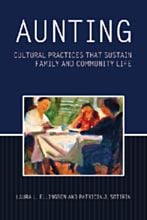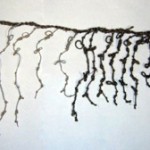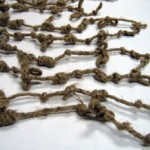Three senior scholars in composition studies are retiring from the Humanities Department this year: Elizabeth Flynn, Professor of Reading and Composition; Marilyn Cooper, Professor of Humanities; and Nancy Grimm, Professor of Humanities. Dr. Grimm retired in December 2012, while Dr. Flynn and Dr. Cooper will retire in May 2013. All three contributed in major ways to the development and success of the graduate program in Rhetoric and Technical Communication, which has graduated 88 doctoral and 139 masters students to date.
Elizabeth Flynn came to Michigan Tech in the fall of 1979 to help develop the University’s Writing Across the Curriculum (WAC) Program. She was chair of the Department of Humanities when both the MS and PhD in Rhetoric and Technical Communication were developed in the late 1980s. She directed Phase II of the WAC Program, which focused on writing in the engineering curriculum and which was supported by grants from the Whirlpool Foundation (P.I., $75,000) and the National Science Foundation (Co-P.I., $175,580). As part of this project, she co-directed a national conference on writing in engineering design courses. She also directed the Liberal Arts Program and the Rhetoric and Technical Communication Program. She has taught undergraduate and graduate courses in rhetoric and composition, literary studies, and gender studies. She was president of the Women’s Caucus for the Modern Languages, and affiliate of the Modern Language Association and served on the executive committee of the Conference on College Composition and Communication twice and on executive committees of several divisions of the Modern Language Association. She serves on the board of the Copper Country Guatemala Project.
In 1981 she co-directed “Discovering Copper Country Women’s Heritage,” a week-long program sponsored by the Michigan Humanities Council, the first program in Michigan Tech’s history to focus on women’s issues. The project was selected as an “Outstanding Humanities Project” and received a Certificate of Commendation from the American Association for State and Local History in 1981.
Flynn has published six books, including the monograph Feminism Beyond Modernism (2002) and the co-edited collections Gender and Reading (1986), Reading Sites (2004) and Feminist Rhetorical Resilience (2012). The book on resilience resulted from an international conference, Feminism(s) and Rhetoric(s): Affirming Diversity, co-directed with Patty Sotirin and Ann Brady in 2005. She has also published over sixty articles and book chapters in the fields of literary studies and rhetoric and composition including two, “Gender and Reading” and “Composing as a Woman,” that have been reprinted multiple times. She has been an invited speaker at numerous conferences and has made over eighty conference presentations. She founded and edited the journal Reader and serves on the editorial boards of two international journals, Works and Days and JAC. She is working on a book tentatively titled “Rhetorical Witnessing.”
Marilyn Cooper came to the Humanities Department as an Associate Professor in 1986, just as the graduate program in Rhetoric and Technical Communication was being put in place. She was one of the early directors of the program and also worked for three years with graduate teaching assistants as they prepared to teach first-year writing. She taught graduate and undergraduate courses in composition, editing, grammar, critical theory, rhetoric, and composition studies, and directed fourteen doctoral dissertations and three masters theses. She chaired the general education subcommittee that designed the first-year seminar, Perspectives on Inquiry. She was also president of the Michigan Tech Chapter of the American Association of University Professors from 2006 to 2008, during the brief period in which Michigan Tech faculty had a bargaining unit.
For five years, she served as editor of College Composition and Communication, the flagship journal in rhetoric and composition studies, during which time she also served on the executive committee of the Conference on College Composition and Communication. She directed the National Council of Teachers of English Commission on Composition for two years, and served for two years on the NCTE Committee on Alternatives to Grading Student Writing. She was appointed as the Thomas R. Watson Distinguished Visiting Professor at the University of Louisville for the spring semester of 2010.
She is the co-author of Writing as Social Action (1989) and thirty-five articles, book chapters, and reviews on social approaches to writing and teaching writing, including the much cited “The Ecology of Writing” (1986). With Dennis Lynch and Diana George, former colleagues in the department, she received the Braddock Award for the best article published in College Composition and Communication in 1997. She has delivered over sixty presentations, a number of which were invited. She is now completing a book manuscript entitled The Animal Who Writes, in which she reconceives writing through the lens of complexity theory and phenomenology.
Nancy Grimm began her career at Michigan Tech in 1978 as a part-time tutor in what was then called the Language Skills Laboratory. From 1979 to 1995, she worked as an instructor and as a professional staff member, directing the Writing Center and leading it into a position of national prominence. During this time, she also served as co-editor of The Writing Center Journal and as executive secretary of the National Writing Centers Association. She was also responsible for coordinating the development of the Learning Centers at Michigan Tech, serving as an advocate for undergraduates and professionalizing the hiring practices and the coach education programs.
Upon completing a PhD in Rhetoric and Technical Communication in 1995, she accepted a tenure track position in Humanities. She was promoted to full professor in 2007.
An interdisciplinary commitment to productive diversity in staffing and programming was central to Grimm’s development of what is now the Michigan Tech Multiliteracies Center. In 2007, the Center earned the attention of Kimberly Clark for this effort and was awarded a $90,000 grant for the renovation of the Center. In the same year, the Michigan Tech Writing Center received a Program of Excellence Award from the Conference of College Composition and Communication, one of only two writing centers in the nation to have received this recognition.
Grimm has published two books and over thirty articles, book chapters, and reviews. Grimm received the outstanding scholarship award from the International Writing Centers Association in 1998 and again in 2000. She was an invited leader at two IWCA Summer Institutes and an invited keynote speaker at sixteen conferences. During her career, she delivered over fifty conference presentations. In the Rhetoric and Technical Communication program, Grimm has directed eleven dissertations and five masters theses. During her career at Tech, she taught graduate and undergraduate courses in composition, technical communication, literature, literacy studies, education, and rhetoric.
